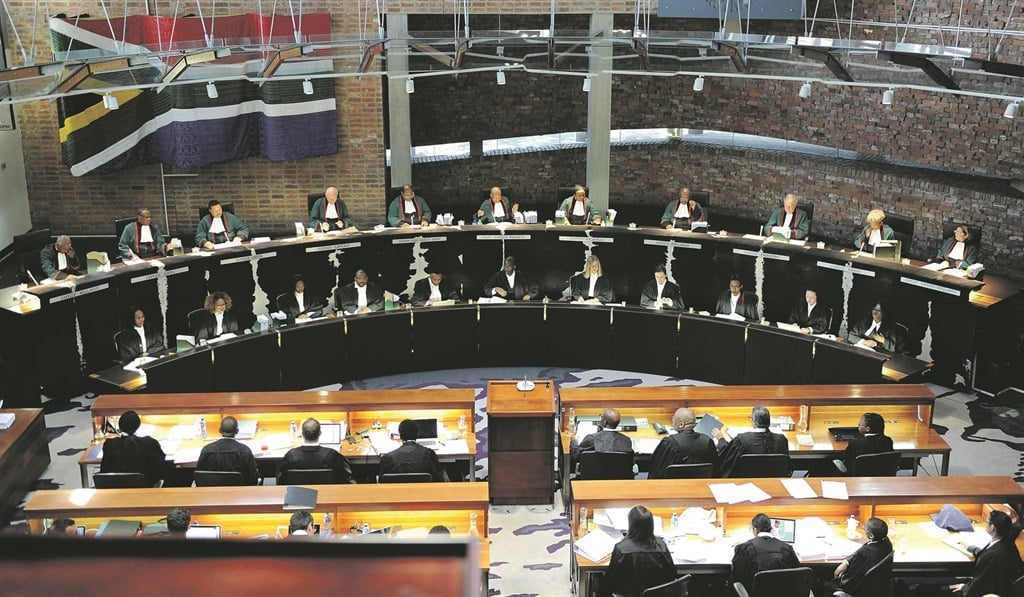
The Constitutional Court confirmed that cancelling an asylum seeker’s visa application because it was not renewed on time was unconstitutional.
- The Constitutional Court confirmed that cancelling an asylum seeker’s visa application because it was not renewed on time was unconstitutional.
- According to the apex court, this resulted in the merits of the asylum seeker’s application not being considered.
- It placed them at risk of being deported to countries they had left for their own safety, which was a violation of international principles.
The Constitutional Court ruled that it was unconstitutional to cancel an asylum seeker’s application simply because they did not renew their temporary asylum visa within a month of its expiration.
The court on Tuesday found that, by doing this, the merits of the asylum seeker’s application were never considered and, as such, they became illegal foreigners.
Cancelling the visa means they can never apply for asylum again and have no right to healthcare, schooling, banking or employment. The effect on the children of applicants is particularly catastrophic because they, too, stand to be arrested as illegal foreigners, through no fault of their own.
In a case first taken to the Western Cape High Court by the Scalabrini Centre, which advocates for refugees’ rights, and the Consortium for Refugees and Migrants in South Africa (Cormsa), the Constitutional Court was asked to confirm that section 22(12) and 22(13) of the Refugees Act was unconstitutional.
The court heard that, under these sections, the asylum application was deemed cancelled if the visa was not renewed within a month of expiry. Once it was cancelled, the applicant was considered an illegal foreigner, who could be arrested and deported to their home country.
This, Scalabrini and Cormsa argued, was against the international principle of non-refoulement – the principle of not sending asylum seekers back to the place where they were being persecuted.
And, they said, it was incorrect to deport them without considering the application due to a procedural mistake.
READ | Motsoaledi proposes radical overhaul of refugee law to correct ‘mistake’ after 1994
The Department of Home Affairs had argued that the cancellation of visas not renewed in time was meant to deal with the backlog of applications.
The department said a substantial number of applicants were not genuine asylum seekers and knew that their application for asylum would be rejected. As a result, the department had some 737 315 inactive visa applications under section 22 of the Refugees Act.
It said these inactive cases “disproportionately exceed” the number of active cases. It created a massive backlog and resulted in delays in finalising asylum applications.
The department estimated that it would take 68 years to clear the backlog – and it hoped that the possibility of cancellation would encourage applicants to be more active again.
It takes an average of five years for an asylum application to be finalised, so these visas must be renewed every six months.
The applicants argued the department was wrong to assume the applicants were not genuine, without assessing the applications, and said it was not the applicants’ fault that there was a backlog.
The court heard that the reasons for not getting it renewed on time were not being able to get time off work, having no money for transport, or not being able to get to a refugee reception office.
The consequence of not renewing it on time was that the applicant also lost all of the rights associated with the visa.
READ | Rwandan refugees to go to the UK, under new ‘fantasy’ migrants deal
It included the right to bank, work, and, for children in particular, the right to education. One child was not able to register for matric exams because of the rule.
In February, Acting Judge President Patricia Goliath, of the Western Cape High Court, declared section 22(12) and 22(13) of the Refugees Act, which came into force on 1 January 2020, unconstitutional.
On Tuesday the Constitutional Court confirmed this.
It ruled: “In short, the impugned subsections violate the principle of non-refoulement, infringe the right to dignity, unjustifiably limit the rights of children, and are irrational and arbitrary.
“It follows that these provisions are unconstitutional and that the high court’s order to that effect must be confirmed.”






Recent Comments